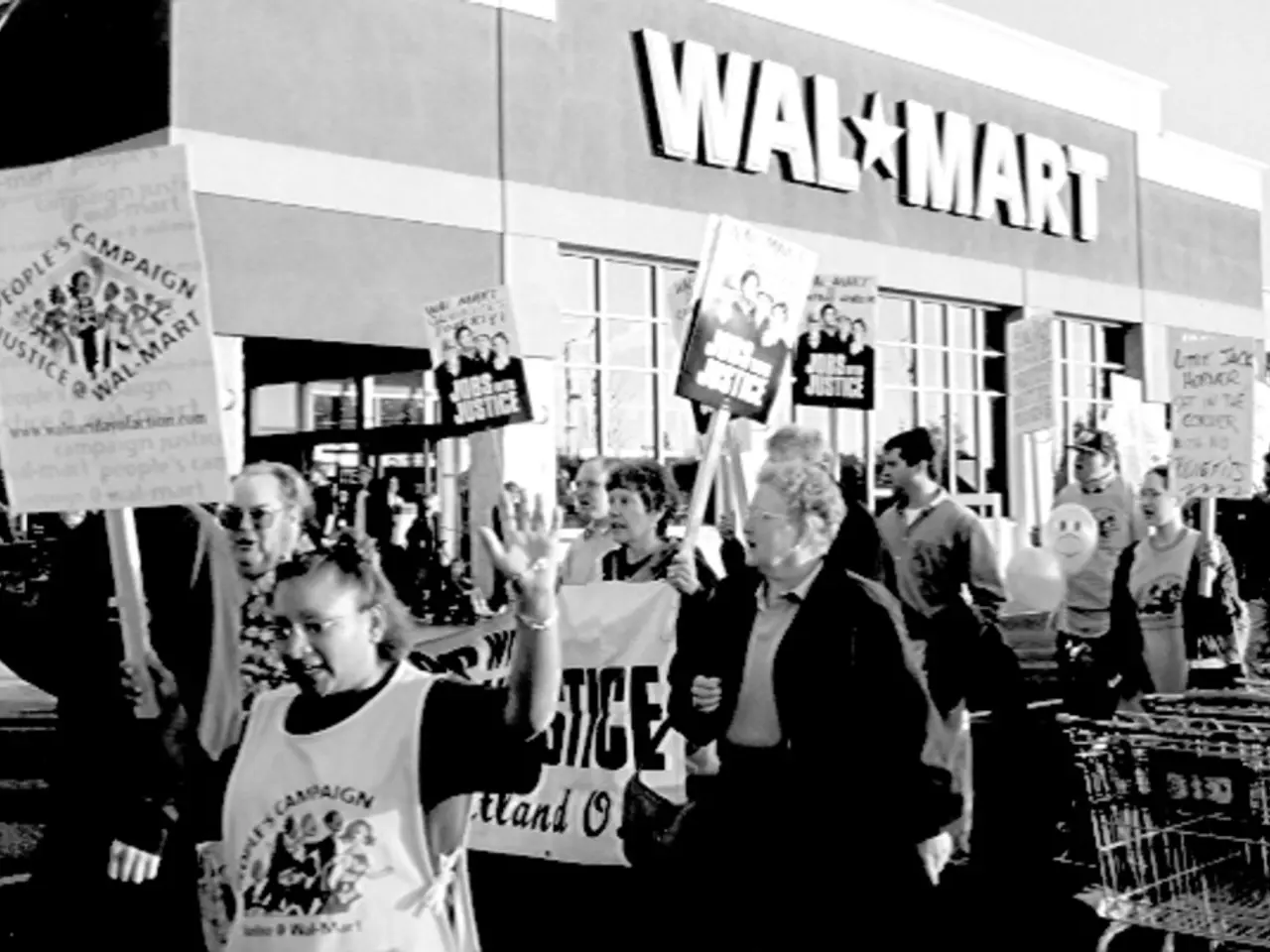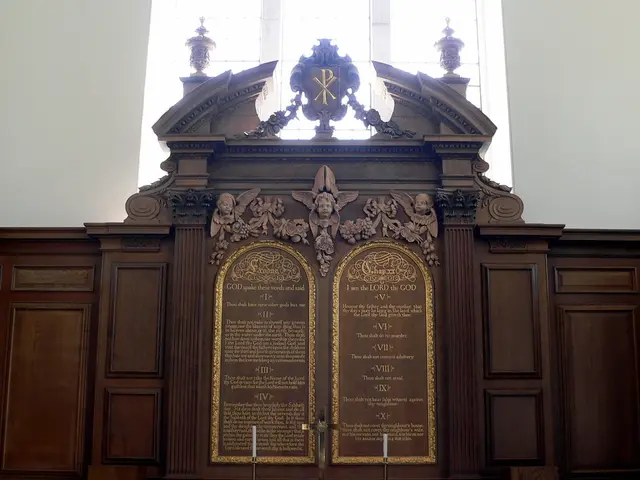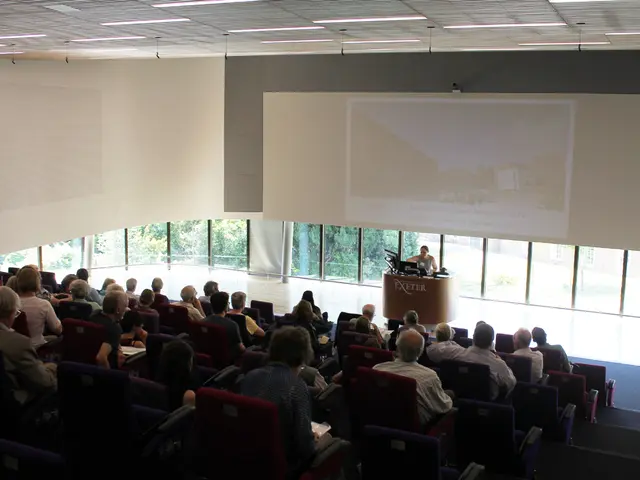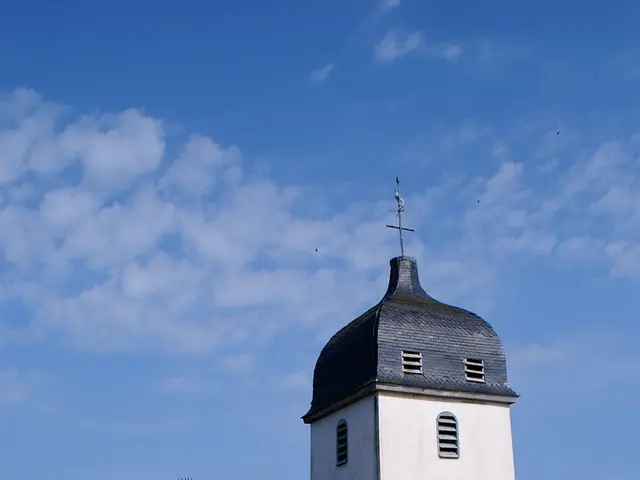Demonstrations in Columbia: Free Expression under Threat
In the heart of New York City, Columbia University has been at the centre of a heated debate following the indefinite detention of Mahmoud Khalil, a Palestinian graduate student and pro-Palestinian activist. Khalil was detained by ICE officials on March 8, 2025, without a warrant, initially under the claim that his student visa had been revoked. However, it was later revealed that Khalil is a lawful permanent resident (green card holder) in the U.S.
The detention of Khalil, the first publicly known deportation effort targeting pro-Palestine activism under the Trump administration, has sparked widespread backlash from civil rights groups, Democratic politicians, and legal experts. The government invoked a Cold War-era immigration law that allows deportation if the Secretary of State believes the individual's presence harms U.S. foreign policy. This law, reminiscent of McCarthy-era practices, is the basis for Khalil's immigration detention despite no criminal charges against him.
Khalil's detention at LaSalle Detention Center in Louisiana has been met with concerns over due process. A federal judge in New York blocked his deportation order and heard his habeas corpus petition, underscoring due process concerns. Yet, Khalil was transferred far from New York, limiting access to his legal team and family, prompting further legal challenges to compel his return.
The controversy also involves right-wing Zionist-linked groups and certain faculty members who reportedly contributed names of pro-Palestinian students to Trump administration officials, influencing targeted deportations including Khalil’s. This has heightened fear among students and faculty about engaging in activism.
The Trump administration has defended its actions by framing them as national security measures, accusing Khalil and others of alignment with Hamas and of creating unsafe campus environments. However, this justification has been legally challenged as a suppression of lawful political expression.
The ongoing legal battles and political debate centre around the use of immigration law to act against political speech and activism under the Trump administration. Khalil may be deported under the statute used against non-citizens who have caused "potentially serious adverse foreign policy consequences for the United States."
Mahmoud Khalil, a Palestinian refugee born in Syria, is not new to adversity. His life has been marked by displacement and conflict, yet his resolve to advocate for peace and justice remains unwavering. The events at Columbia University have once again brought to the forefront the complexities of higher education in a world marred by polarization, discontent, and war.
As the 2023-24 academic year progresses, the impact of these events on college campuses nationwide is becoming increasingly apparent. Pro-Israel and pro-Palestine demonstrations have become commonplace, as students grapple with the realities of the ongoing Israel-Hamas conflict and its implications for their communities.
This article is based on reports from various sources, including Ashwin Prabaharan '26, who writes about the ongoing Israel-Hamas conflict and its impact on college campuses. Images of the pro-Israel and pro-Palestine demonstrations were provided by Spencer Platt/Getty Images and Jeenah Moon/Reuters respectively.
[1] The Intercept [2] The New York Times [3] The Nation [4] Columbia Spectator [5] ACLU
- The detention of Mahmoud Khalil, a student at Columbia University and pro-Palestinian activist, has sparked nationwide discussions on education-and-self-development, politics, and general-news.
- The controversy surrounding Khalil's detention has prompted alumni, faculty, and local organizations to voice their opinions, with many expressing concern about the potential suppression of lawful political expression.
- Despite concerns over due process andAccess to legal counsel, Khalil continues to be held at LaSalle Detention Center, raising questions about the use of immigration law in such circumstances.
- university news outlets like The Columbia Spectator and The Nation have covered Khalil's case extensively, drawing attention to the broader implications for education and student activism.
- Right-wing Zionist-linked groups and certain faculty members at the university have been accused of influencing targeted deportations, creating a chilling effect on campus events and student organizations.
- The ongoing legal battle and political debate has brought attention to war-and-conflicts and their impact on higher education, with students and faculty increasingly concerned about expressing political opinions in a polarized environment.




